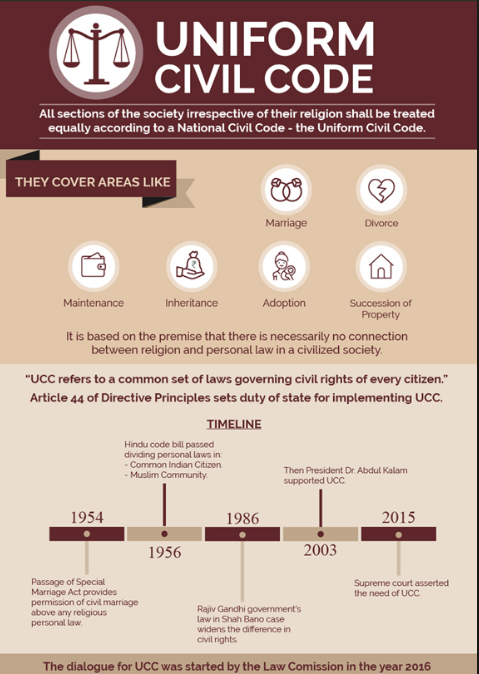Haryana Switch to Hindi
Haryana: First State to Buy all Crops from Farmers at MSP
Why in News?
Recently, Haryana Chief Minister announced the procurement of all crops in the state at the Minimum Support Price (MSP), thus becoming the first in the country to procure all crops at MSP.
Key Points
- The Chief Minister also announced the waiving of Rs 133 crore in outstanding canal water irrigation charges.
- The payment of pending compensation of Rs 137 crore within a week to farmers who suffered crop damage because of natural calamity in Rohtak, Nuh, Fatehabad and Sirsa before 2023 was also announced.
Minimum Support Price (MSP)
- MSP is the guaranteed amount paid to farmers when the government buys their produce.
- MSP is based on the recommendations of the Commission for Agricultural Costs and Prices (CACP), which considers various factors such as cost of production, demand and supply, market price trends, inter-crop price parity, etc.
- CACP is an attached office of the Ministry of Agriculture and Farmers Welfare. It came into existence in January 1965.
- The Cabinet Committee on Economic Affairs (CCEA) chaired by the Prime Minister of India takes the final decision (approve) on the level of MSPs.
- The MSP is aimed at ensuring remunerative prices to growers for their produce and encouraging Crop Diversification.


Bihar Switch to Hindi
Adani Cement Investment in Bihar
Why in News?
Recently, the Bihar Chief Minister laid the foundation stone for a Rs 1,600 crore cement grinding unit of Ambuja Concrete North Private Limited, a subsidiary of Gautam Adani's Ambuja Cement Limited (ACL), in the Warisaliganj industrial area of Bihar's Nawada district.
Key Points
- The 6 Million tonnes per annum (MTPA) project will be implemented in stages, with the first phase slated for completion by December 2025. It will create 250 direct jobs and 1,000 indirect jobs.
- The cement unit is anticipated to generate Rs 250 crore in revenue for the government on an annual basis.
- The Bihar Industrial Area Development Authority has allocated 73 acres of land for the establishment of the cement unit.
- Adani Group has also proposed additional investments of Rs 5,500 crore in Bihar for a new cement plant in Muzaffarpur's Motipur, a logistic godown near Patna, and agricultural logistic godowns at Araria, Kishanganj, and Begusarai.


Uttarakhand Switch to Hindi
Climate Change Imprint in Uttarakhand
Why in News?
According to the experts, the heavy rainfall in Uttarakhand was not a cloudburst, but shows the impact of climate change, highlighting the Indian Himalayas' lack of preparedness for such intense rainfall.
Key Points
- The districts of Rudraprayag, Dehradun, Pauri and Tehri Garhwal reported damage to life and property due to heavy rainfall.
- According to the Indian Meteorological Department (IMD) meteorologist, a 'cloudburst' is defined as more than 100 mm of rainfall in one hour.
- In this case, there was no cloudburst in Kedarnath, but Nainital and Dehradun recorded over 50 mm in one hour, and Sonprayag received more than 30 mm of rain in an hour.
- The sensitive geomorphological conditions of high mountain areas make even less rainfall cause more damage.
- Landslides occur due to steep slopes, land shape, and soil nature, leading to extensive damage.
- The geologically-young Himalayan range is not built for heavy rainfall, and the intensity of both heat and rain is increasing in the mountains due to climate change.
Landslide
- A landslide is defined as the movement of a mass of rock, debris, or earth down a slope.
- They are a type of mass wasting, which denotes any downward movement of soil and rock under the direct influence of gravity.
- The term landslide encompasses five modes of slope movement: falls, topples, slides, spreads, and flows.


Uttarakhand Switch to Hindi
UCC before Uttarakhand's Foundation Day
Why in News?
Recently, the Uttarakhand Chief Minister declared that his state will implement the Uniform Civil Code (UCC) before Foundation Day (9th November 2024).
Key Points
- The UCC Bill was introduced in the state legislative assembly on 6th February 2024 and was passed on 7th February 2024 during a special session of the Uttarakhand assembly.
- It was proposed in India to establish uniform rules for personal matters such as marriage, divorce, inheritance, and property rights applying to all citizens equally irrespective of their religion, gender or sexual orientation.
- The proposed law has 392 sections divided into four parts and seven chapters providing equal rights to women in marriage, divorce, alimony and inheritance of property, proscribes certain kinds of relationships, bans polygamy, sets the marriageable age for men and women (21 years and 18 years respectively), and makes registration of marriages mandatory.
- The state's Scheduled Tribe population which comprises 2.89% of the population are exempted from this law.


Chhattisgarh Switch to Hindi
Corporal Punishment
Why in News?
Recently, The Chhattisgarh High Court observed that subjecting a child to Corporal Punishment in school in the name of discipline or education is cruel, while dismissing a petition of a woman teacher accused of abetting the suicide of a student.
Key Points
- According to the court, imposition of corporal punishment on the child is not in consonance with his right to life guaranteed by Article 21 of the Constitution of India. Being small does not make a child a less human being than a grown up.
Corporal Punishment
- About:
- Corporal is defined by the UN Committee on the Rights of the Child, as “any punishment in which physical force is used and intended to cause some degree of pain or discomfort, however light.”
- According to the Committee, this mostly involves hitting (smacking, slapping, spanking) children with a hand or implements like sticks, belts, etc.
- According to the World Health Organization (WHO), corporal or physical punishment is highly prevalent globally, both in homes and schools.
- Around 60% of children aged 2–14 years regularly suffer physical punishment by their parents or other caregivers.
- There is no statutory definition of ‘corporal punishment’ targeting children in India.
- Corporal is defined by the UN Committee on the Rights of the Child, as “any punishment in which physical force is used and intended to cause some degree of pain or discomfort, however light.”
- Types of corporal punishment:
- Physical punishment, as defined by the National Commission for Protection of Child Rights (NCPCR), encompasses any action that inflicts pain, injury, or discomfort upon a child.
- This includes coercing children into uncomfortable positions such as standing on a bench, against a wall in a chair-like stance, or with a school bag on their head.
- It also involves practices like holding ears through legs, kneeling, forced ingestion of substances, and confining children to enclosed spaces within the school premises.
- Mental harassment pertains to non-physical mistreatment that adversely affects a child's academic and psychological well-being.
- This form of punishment encompasses behaviours such as sarcasm, name-calling, scolding using derogatory language, intimidation, and the use of humiliating remarks.
- It also includes actions like ridiculing, belittling, or shaming the child, creating an environment of emotional distress and discomfort.
- Physical punishment, as defined by the National Commission for Protection of Child Rights (NCPCR), encompasses any action that inflicts pain, injury, or discomfort upon a child.


Jharkhand Switch to Hindi
Alert issued in Jharkhand
Why in News?
Recently, The East Singhbhum district in Jharkhand issued an alert for people living in the low-lying areas due to the swelling of rivers following heavy rainfall.
- The water levels in the Kharkhai and Subarnarekha rivers have been increasing due to the persistent rain in the state.
Key Points
- Approximately 3,500 cusecs of water was discharged into the Subarnarekha river from the Chandil Dam located in the neighboring Seraikela-Kharswan district.
- The residents living in the affected areas have been instructed to avoid going near the rivers and to adhere to the directives provided by the authorities.
- The relentless rainfall has resulted in numerous road diversions being washed away, trees being uprooted, houses being damaged, and a bridge collapsing.
Subarnarekha River
- Subarnarekha (Line of gold) river flows through the states of Jharkhand, West Bengal and Odisha.
- Major Tributaries: Kanchi River and Kharkai river
Kharkai River
- It is one of the major tributaries of the Subarnarekha River.
- It flows through the Adityapur region of Jamshedpur.
- It arises in Mayurbhanj district, Odisha.










%20MPPCS%202025%20Desktop%20E.jpg)
%20MPPCS%202025%20Mobile%20E%20(1).jpg)










.png)
.png)











 PCS Parikshan
PCS Parikshan


